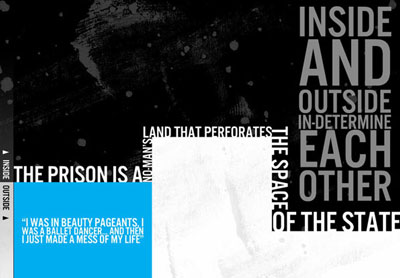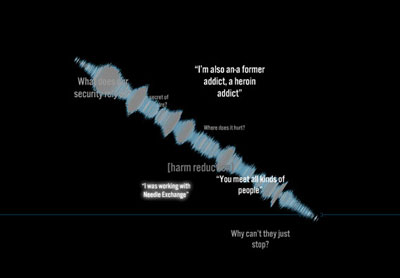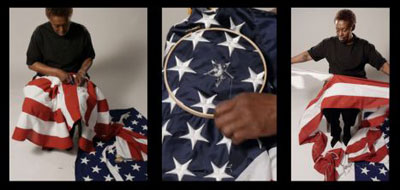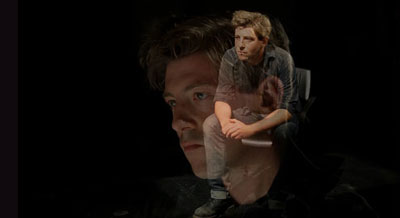Sharon Daniel
The exhibition Convictions brings together four projects of Sharon Daniel. Public Secrets, Blood Sugar, Undoing Time and Inside The Distance manifest Daniel's fully engaged and critical understanding of the prison-industrial complex, criminal justice system, and theories of justice and punishment. What characterizes Daniel’s work is the belief that complex sites of socio-political experience are best examined by creating a context for multiple perspectives and engaging public participation. The interactive interfaces that are typical of her work allow viewers to find their way through a difficult terrain, become immersed in it, and have a transformative experience. The works in this exhibition introduce marginal and often silenced voices and present alternative visions, enabling public engagement with questions of social justice across social, racial, political and economic boundaries.
The exhibition is organised in the framework of the project “Art for Social Change: Exploring Justice through New Media Documentary”, a co-production by LINC-KU Leuven, STUK Arts Centre, Courtisane, University of California Santa Cruz, European Forum for Restorative Justice, Suggnomè Forum voor herstelrecht en bemiddeling vzw & Alba, and funded by OPAK.
opening hours:
We - Th 14:00 - 21:00
Fr - Su 14:00 - 18:00
opening 26 September 19h00



